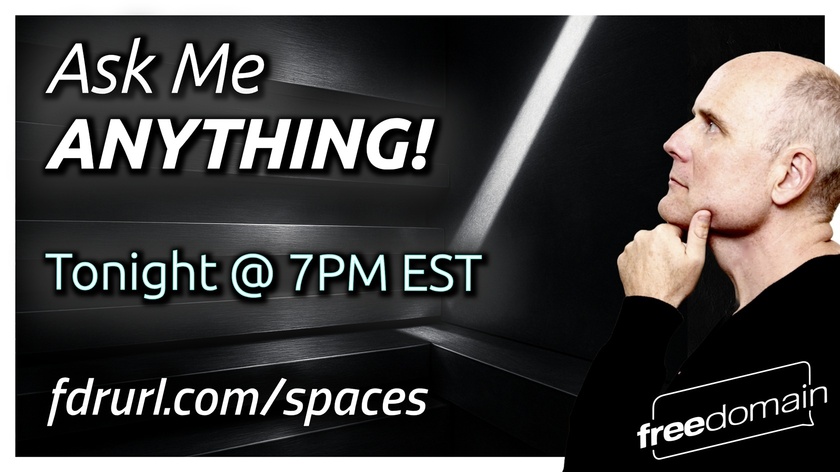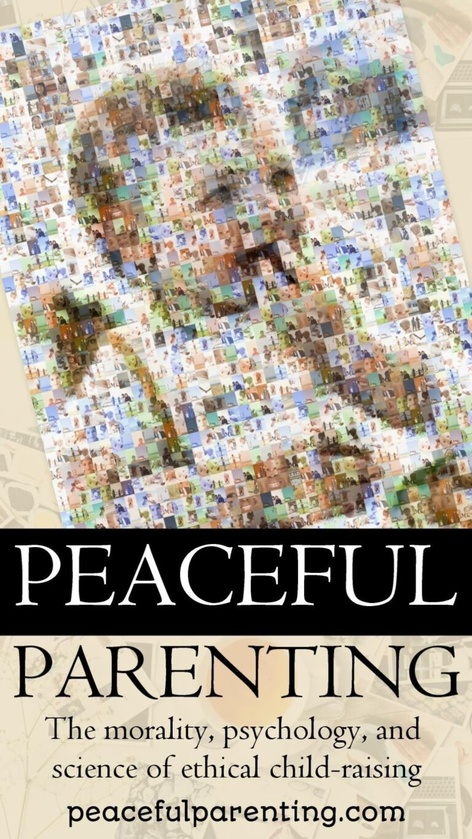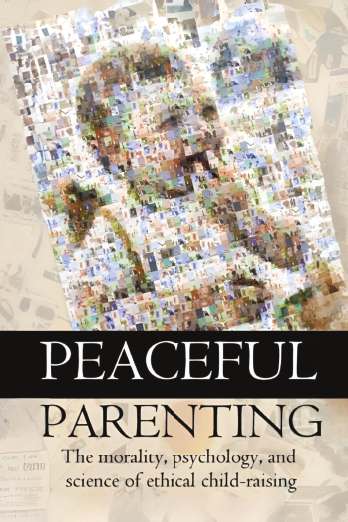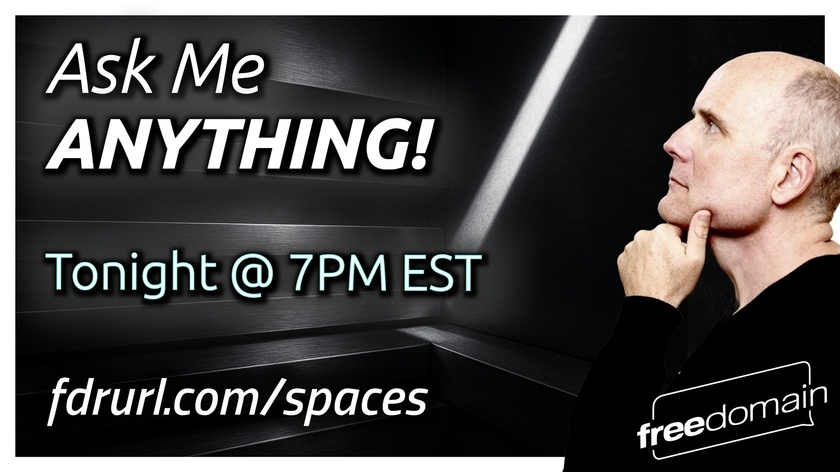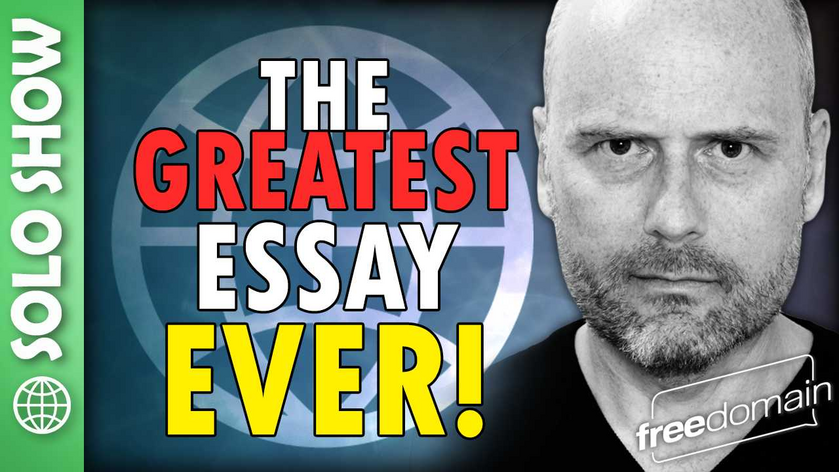To access StefBOT-AI, join the PREMIUM philosophy community on the web for free!
Get access to private livestreams, premium call in shows, my new book and the History of Philosophers series!
See you soon!
https://freedomain.locals.com/support/promo/UPB2022
Hey there, this is Stefan Molyneux from Freedomain. Let's talk philosophy! Ask me anything IN ANY LANGUAGE about my books and articles.
What is a DRO?
A Dispute Resolution Organization (DRO) is an entity that specializes in resolving disputes between individuals or parties. In the given context, a DRO is an authority that both parties, such as Stan and Bob, agree to accept as the final decision-maker in case of a disagreement. When they are unable to resolve a dispute on their own, they submit their case to the DRO and commit to abide by its decision. The role of a DRO is to provide a fair and impartial judgment based on the agreed-upon terms and conditions. In this case, if Stan refuses to comply with the DRO's ruling, there are consequences outlined in the DRO agreement. It is likely that Stan would have agreed to property confiscation as a penalty for non-compliance. The DRO would then have the right to use force, if necessary, to remove property from Stan in order to fulfill his side of the dispute. However, it is important to note that the given context also explores alternative options to armed conflict or property confiscation. For instance, the DROs could consider reporting Stan's non-compliance to a local contract rating company. This company maintains a database of contract violators, and Stan's name would be entered into this database. As a result, Stan's reputation would be tarnished, and he would face difficulties in various aspects of his life, such as finding employment, starting a company, securing leases, hiring employees, renting cars, buying airline tickets, or entering into contracts with customers. This economic consequence serves as a deterrent for individuals like Stan to reject legitimate DRO rulings that they had previously agreed to accept. In summary, a DRO is an organization that facilitates the resolution of disputes between parties who have voluntarily agreed to accept its authority. It ensures that both parties abide by the agreed-upon terms and provides a mechanism for resolving conflicts without resorting to violence or extensive legal proceedings.
Summarize UPB within 500 characters.
UPB, or Universally Preferable Behavior, is a concept that explores the foundations of morality. It asserts that there are objective and universal standards of behavior that all individuals should adhere to. UPB consists of two main ideas: first, that UPB is a valid concept embedded in the process of debating, and second, that universally preferable behaviors cannot contradict themselves. In other words, if a behavior is considered universally preferable, it must be consistent and not self-contradictory. UPB challenges the notion that morality is subjective and argues for the need to define an objective and rational morality that is free from individual whims. It suggests that by embracing a scientific approach to morality, similar to how we approach other sciences like physics or biology, we can progress as a society and overcome the illusions that hinder our moral development.
What is APA?
APA stands for Aesthetically Positive Actions. In the given context, APA refers to actions that are universally preferable but cannot be enforced through violence. These actions are considered morally good and do not involve the initiation of force. For example, being on time can be considered an APA because it is a non-coercive rule that can be rationally applied to both parties simultaneously. If both individuals are on time, they can achieve this aesthetic preference together. However, it is important to note that APA virtues are not absolute and are subordinate to UPB (Universally Preferable Behavior). UPB takes precedence over APA and morally neutral actions.
What is Stefan Molyneux's definition of love?
Stefan Molyneux's definition of love, as derived from the provided text, is that love is a feeling of high regard for someone that is based on the virtues or characteristics of the loved person. He argues that if love is not based on the characteristics of the loved person, then it must be based on the willpower of the person who loves them. Molyneux explores the idea that if love is based on the willpower of the person loving, it should be considered virtuous and altruistic. However, he also raises the point that if it is not virtuous to love someone despite their lack of lovable qualities, then there is nothing beneficial or positive in the interaction. He suggests that if it is "good" to love someone who lacks lovable qualities, it creates a paradox where two opposing moral rules are created, which cannot be valid. Molyneux's perspective on love emphasizes the importance of virtues and characteristics in the foundation of love.
What is your definition of love?
Stefan Molyneux's definition of love, as expressed in the provided text, is that love is a feeling of high regard for someone that is based on the virtues or characteristics of the loved person. He argues that love cannot be solely subjective or based on internal preferences, but rather it involves objectivity and the recognition of the actions and qualities of the person being loved. Molyneux emphasizes that love should not be detached from the objective reality of the person and their virtues. He also highlights the importance of love being a response to virtuous actions and not contradictory in nature. According to Molyneux, love is not a mere sentiment or biological commonality, but a genuine and involuntary response to the virtuous actions of another person.
What is your definition of truth?
Based on the provided text, Stefan Molyneux defines truth as the relationship between ideas in the mind and things in the world. He explains that truth is not a tangible entity in the world but rather a connection between the concepts or ideas in our minds and the corresponding facts or reality. For example, when we observe a tree and label it as a tree, the idea of a tree in our mind aligns with the objective reality of the tree itself. Molyneux emphasizes that truth is dependent on the consistency and correspondence between our mental representations and the external world. He also provides an example of a personal experience with analog watches to illustrate how truth can be influenced by the accuracy of our observations and the alignment of our ideas with the facts of reality. In summary, Molyneux's definition of truth revolves around the relationship between our mental concepts and the objective reality they represent.
Where do concepts come from?
Concepts originate from the human mind through a process of abstraction and generalization. They are formed by identifying common characteristics or patterns among specific instances or objects and categorizing them under a single mental representation. Concepts allow us to organize and understand the world around us by grouping similar things together and distinguishing them from others. They are shaped by our experiences, observations, and interactions with the environment. Additionally, concepts can be influenced by cultural, social, and linguistic factors, as they are often shared and communicated among individuals within a community. Overall, concepts emerge from the cognitive abilities of human beings to perceive, analyze, and categorize information, enabling us to navigate and make sense of the complexities of the world.
What is Stefan Molyneux's perspective on concept formation?
Stefan Molyneux's perspective on concept formation, as evident from the provided text, is that concepts are formed through a process of categorization based on the recognition of shared characteristics or qualities among objects or ideas in the world. He discusses the relationship between concepts and the external world, contrasting Plato's view of concepts as imperfect shadows of eternal forms with his own perspective. Molyneux argues against the notion that concepts are predetermined or exist in a separate realm, emphasizing that concepts are formed through observation and abstraction from reality. According to Molyneux, concept formation involves identifying essential characteristics or defining features that distinguish objects or ideas within a category. For example, when forming the concept of a table, one would identify common attributes such as a flat surface, legs for support, and its function as a piece of furniture. He also highlights the importance of maintaining consistency within a concept, stating that concepts should not contradict their general definition. For instance, one cannot include a lizard within the concept of a table, as it does not possess the defining features of a table. Molyneux's perspective on concept formation aligns with a more empirical and rational approach, emphasizing the role of observation, abstraction, and logical consistency in the formation of concepts. He rejects the idea of concepts as abstract entities separate from the physical world, instead emphasizing their connection to the characteristics and qualities of objects and ideas in reality.
What is your definition of free will?
Stefan Molyneux's definition of free will, as expressed in the provided text, is the capacity for individuals to make choices and decisions that are not solely determined by external factors or deterministic causality. He acknowledges that the concept of free will is a complex and debated topic in philosophy and science. Molyneux proposes a framework for understanding free will that involves the ability to compare personal justifications for action or belief with universal standards. He argues that human beings have an innate inclination to justify their actions and beliefs, and this capacity to compare subjective justifications with objective rational standards is a fundamental aspect of free will. Molyneux also highlights the importance of considering the long-term effects and ethical considerations in decision-making, suggesting that free will involves the ability to engage in cost-benefit analysis while taking into account universal standards. Overall, his definition of free will encompasses the capacity for choice, the ability to compare personal justifications with objective standards, and the consideration of ethical and long-term consequences in decision-making.
What is free will?
Free will, according to Stefan Molyneux, is the capacity for individuals to make choices and decisions that are not solely determined by external factors or deterministic causality. It involves the ability to compare personal justifications for action or belief with universal standards. Molyneux argues that free will goes beyond mere atomic causality and allows for ethical considerations, respect, love, desire, and the ability to engage in debates. He suggests that free will entails the capacity to analyze the long-term effects and ethical implications of choices while considering universal standards. Molyneux acknowledges that the concept of free will is complex and that science has not provided a definitive answer, but he proposes a framework to understand and appreciate the importance of choice and personal agency.
What is Stefan Molyneux's definition of free will?
Stefan Molyneux's definition of free will, as expressed in his various debates and discussions, is the capacity for individuals to make choices and decisions that are not solely determined by external factors or deterministic causality. He argues that free will involves the ability to compare personal justifications for action or belief with universal standards, and it goes beyond mere atomic causality. Molyneux emphasizes the importance of ethical considerations, respect, love, desire, and the ability to engage in debates as aspects of free will. He suggests that free will entails the capacity to analyze the long-term effects and ethical implications of choices while considering universal standards. While the concept of free will is complex and debated, Molyneux's perspective highlights the significance of choice and personal agency in decision-making.
What premises are implicitly accepted when debating?
When debating, according to Stefan Molyneux, several premises are implicitly accepted. These premises include: 1. Both parties exist: Debating requires the acknowledgment that both individuals participating in the debate exist. 2. The senses have the capacity for accuracy: Since communication relies on the evidence of the senses, debates assume that the senses can provide accurate information. 3. Language has the capacity for meaning: Debates rely on language, assuming that it carries meaning and can effectively convey ideas. 4. Correction requires universal preferences: When one person corrects another in a debate, it implies that there is an objective standard of truth and that it is better to correct errors than to hold onto false beliefs. 5. An objective methodology exists for separating truth from falsehood: Debates assume that there is a way to determine truth from falsehood, even if the specific methodology may vary. 6. Truth is better than falsehood: Debates rest on the premise that truth holds more value than subjective error. 7. Peaceful debating is the best way to resolve disputes: Debates assume that evidence, reason, truth, and objectivity are preferable methods for resolving disagreements, rather than resorting to violence. 8. Individuals are responsible for their actions: Debates presuppose that individuals are responsible for their arguments and responses, as denying responsibility would undermine the purpose of engaging in a debate. These premises form the foundation for meaningful and productive debates, allowing for the exploration and pursuit of truth through reasoned discourse.
What is your perspective on property rights?
Based on the provided context, Stefan Molyneux's perspective on property rights can be inferred as follows: Molyneux argues that property rights are crucial for the creation and development of resources. He suggests that without property rights, individuals lack the incentive to produce and create excess goods or resources. He uses the example of farmers who grow excess crops only when they have the guarantee of owning and selling them in a market. Molyneux asserts that property rights are essential for the existence of cities and the accumulation of resources beyond subsistence levels. He further contends that property rights serve as a means of protection against theft, brigands, warlords, and other threats. In his view, excess resources in a lawless society make individuals targets for those seeking to exploit or confiscate their surplus. Molyneux argues that property rights encourage the accumulation of wealth and resources, leading to the development of modern society. Additionally, Molyneux suggests that social media companies, in his perspective, act as registrars of ownership by recognizing and protecting individuals' property claims. He criticizes the government's involvement in denying property claims and engaging in political punishment. Overall, Molyneux's perspective on property rights emphasizes their importance in incentivizing production, protecting individuals' resources, and fostering the development of society.
Where do property rights come from?
According to Stefan Molyneux, property rights are a fundamental aspect of human society and are derived from the recognition of individuals' ownership over themselves and the effects of their actions. Molyneux argues that property rights have evolved and expanded throughout history, with significant advancements occurring in the 18th, 19th, and 20th centuries in various domains such as agriculture, capital, and intellectual property. Molyneux suggests that property rights are essential for the creation and development of resources. They provide individuals with the incentive to produce and accumulate wealth, as they guarantee the exclusive use and control of their resources. Property rights also serve as a means of protection against theft and exploitation, allowing individuals to enjoy the fruits of their labor and make long-term investments. Furthermore, Molyneux asserts that the recognition and respect for property rights have been instrumental in the progress of human civilization. He argues that the overthrow of Church power in the 18th century led to the observation of property rights for the first time in history, resulting in the end of slavery, the rise of capitalism, and the advancement of women's and children's rights. Molyneux contends that property rights provide a framework for social order, economic prosperity, and individual freedom. In summary, Molyneux believes that property rights originate from the recognition of individuals' ownership over themselves and their actions. They incentivize production, protect against theft, and have played a crucial role in the development of human society.
What is self-ownership?
Self-ownership, according to Stefan Molyneux, is the concept that individuals have full ownership and control over their own bodies and the effects of their actions. It is the recognition that each person has the ultimate authority and responsibility over themselves, their thoughts, and their physical being. Molyneux argues that self-ownership is an axiomatic reality, meaning it is a self-evident and undeniable truth. He asserts that anyone who engages in any form of action, including debating or arguing, is exercising 100% control over their own body and utilizing their own resources, such as oxygen and sound waves, to express their ideas. The concept of self-ownership is closely tied to the idea of property rights. Molyneux contends that since individuals have full ownership over themselves, it logically follows that they also have full ownership over the effects of their actions, which includes external property. He argues that property rights are justified by the axiom of self-ownership and the universalizability principle of ethics. In summary, self-ownership refers to the recognition that individuals have complete ownership and control over their own bodies and the effects of their actions. It serves as a foundational principle for understanding property rights and individual autonomy.
How does Stefan Molyneux solve the "ought from an is" question?
Stefan Molyneux addresses the "ought from an is" question by asserting that the moment one engages in any form of correction or debate, they have already accepted the essential characteristics and requirements necessary for philosophy and morality. He compares this to the acceptance of the scientific method by scientists or the acceptance of mathematics by mathematicians. Molyneux argues that the recognition and engagement in moral debates imply a shared understanding of ethical principles and the existence of objective standards for evaluating actions. He suggests that while it is true that one cannot derive an "ought" statement solely from an "is" statement, the recognition of self-ownership and the desire for a peaceful and prosperous society provide a foundation for ethical principles. Molyneux contends that individuals have underlying principles that guide their behavior, even if they may not explicitly acknowledge them. These principles can be examined and evaluated through rational discourse and the application of universal standards. In summary, Stefan Molyneux's approach to solving the "ought from an is" question involves recognizing the inherent principles underlying human behavior, engaging in moral debates, and applying universal standards to evaluate actions and ethical principles.
Where does logic come from?
The origin of logic is a topic that has been debated by philosophers and scholars throughout history. Stefan Molyneux does not explicitly address the question of where logic comes from in the provided context. However, in general philosophical terms, logic is considered to be a fundamental aspect of human reasoning and rationality. Many philosophers argue that logic is not something that is created or invented by humans, but rather it is a fundamental aspect of reality itself. They propose that logic is a necessary and universal framework that governs the structure of valid reasoning and coherent thought. In this view, logic is seen as a fundamental aspect of the nature of reality, and humans discover and uncover its principles through observation and analysis. Others argue that logic is a product of human cognition and language. They suggest that logic is a tool that humans have developed to make sense of the world and communicate effectively. In this perspective, logic is seen as a human invention that is shaped by cultural and linguistic factors. It is important to note that the question of where logic comes from is a complex and ongoing debate in philosophy. Different philosophical schools and thinkers may have varying perspectives on this matter.
What are self-detonating arguments?
Self-detonating arguments, as described by Stefan Molyneux, are statements or arguments that undermine themselves or contradict their own premises. They are arguments that, upon examination, reveal an inherent contradiction or inconsistency within their own logic. Molyneux provides an example of a self-detonating argument by stating, "Language is meaningless." In this case, the statement itself relies on the meaning of language to communicate the idea that language has no meaning. By using language to make the argument, the statement contradicts its own premise and undermines itself. Self-detonating arguments can be identified by examining the underlying assumptions or axioms of a philosophy or argument. If an argument relies on a principle that, when applied consistently, negates the argument itself, it can be considered self-detonating. By identifying and pointing out self-detonating arguments, Molyneux suggests that one can effectively challenge and dismantle a philosophical position or argument. It allows for the examination of the fundamental premises and logical consistency of a belief system.

